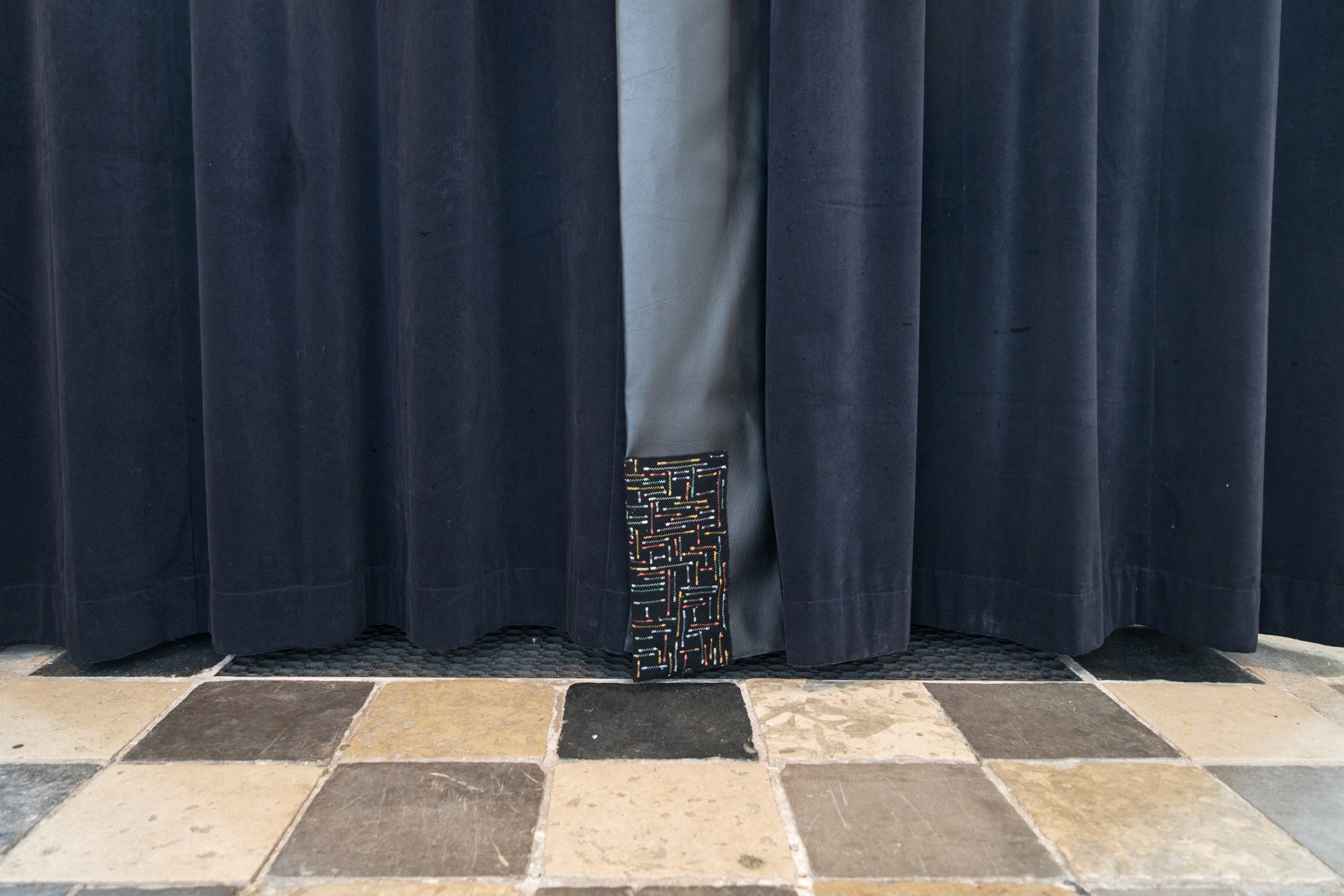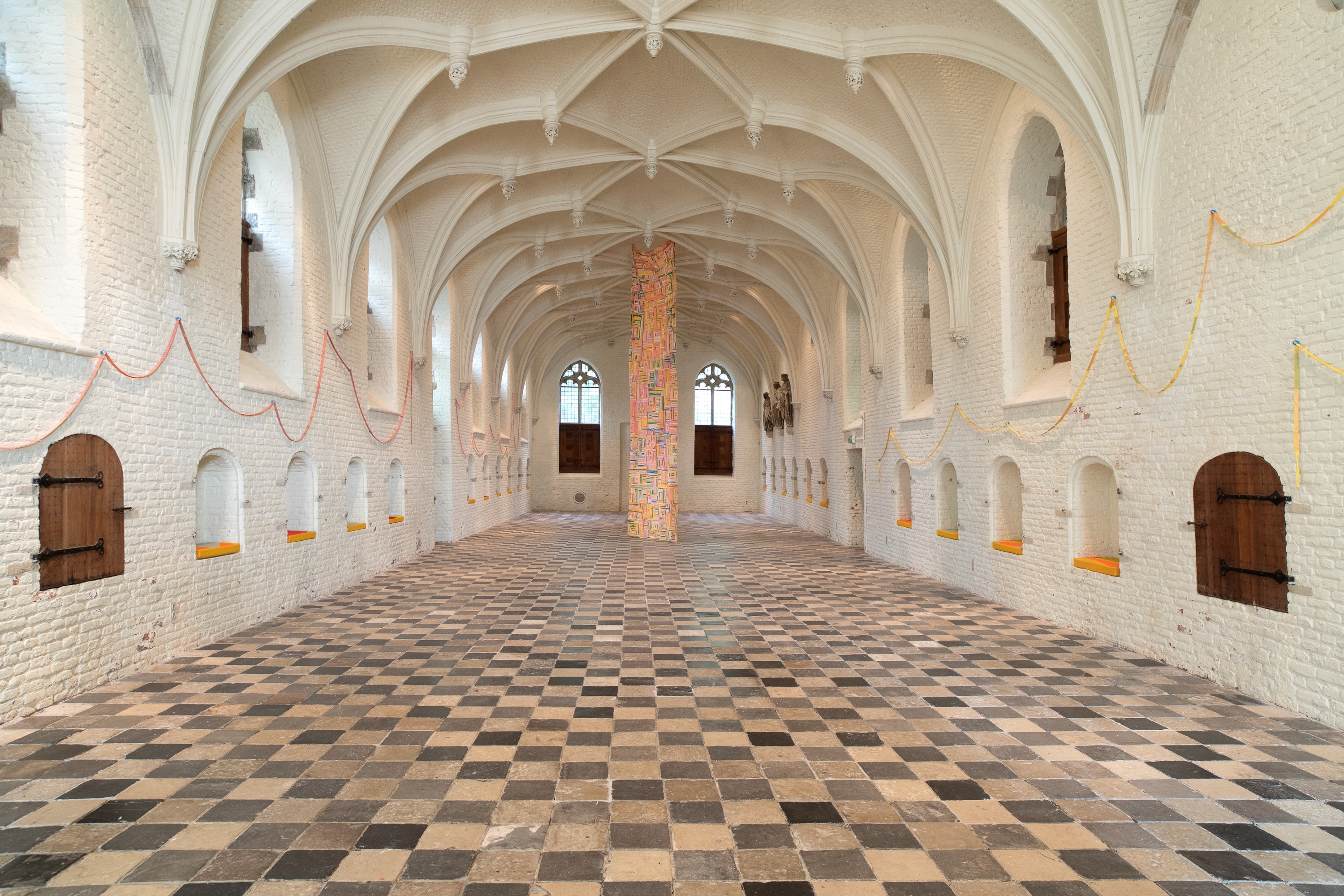patches
Katie Schwab
Installation
2021

In autumn, the Vleeshal’s entrance is cloaked in a heavy curtain. Katie Schwab has patched the tears on the bottom of this hardworking textile using zigzag techniques that prevent a fabric from fraying. patches, originally made for Schwab's solo exhibition small wares, is a study of the zigzag machine-stitch and the saw toothed cuts made by pinking shears. patches acknowledges and strengthens that which has been torn, damaged or simply worn-out.
Commissioned for
Persons
Katie SchwabSeries
Vleeshal is an internationally oriented center for contemporary art, rooted in Zeeland. In Zeeland Focus, Vleeshal highlights regional artists, takes part in and celebrates local contemporary art and culture.
From time to time Vleeshal invites guest curators to organize exhibitions in the Vleeshal or to develop other projects. By doing so, we aim to welcome new perspectives and contribute to talent development.
Vleeshal is a unique center for contemporary art, not only because of its atypical exhibition space and exciting programming, but also because it has a collection. In the 1990s, under the impetus of then director Lex ter Braak, an ambitious collection of contemporary visual art was begun. This collection was intended for a newly envisioned museum in Middelburg, designed by Aldo and Hannie van Eyck. In 1995 it became clear that, unfortunately, there was insufficient political support for this museum. The impetus of collection building had therefore lost its possible context and visibility and encumbered Vleeshal. The collection had become a storage cost and management issue.
In 2005, the collection was given on a long-term loan to M HKA in Antwerp. M HKA was chosen because of the close historical ties between Middelburg and Antwerp, the museum's collection profile, and the fact that M HKA's director, Bart De Baere, was a member of the committee that purchased artworks for the yet-to-be-built museum in Middelburg in the 1990s.
The collection consists of two parts. One part includes national and local art from the BKR arrangement (the Dutch abbreviation BKR stands for Beeldende Kunstenaars Regeling, an arrangement, which from 1949 to 1987 provided artists with a temporary income in exchange for works of art or other artistic quid pro quo). The other part consists of artworks by international contemporary artists (including Jimmie Durham, Nedko Solakov, Suchan Kinoshita, Cameron Jamie, Pipilotti Rist, and Job Koelewijn).
There has been no active acquisition policy for years. The collection is expanded here and there with sporadic purchases and donations from artists who are part of the Vleeshal program.
